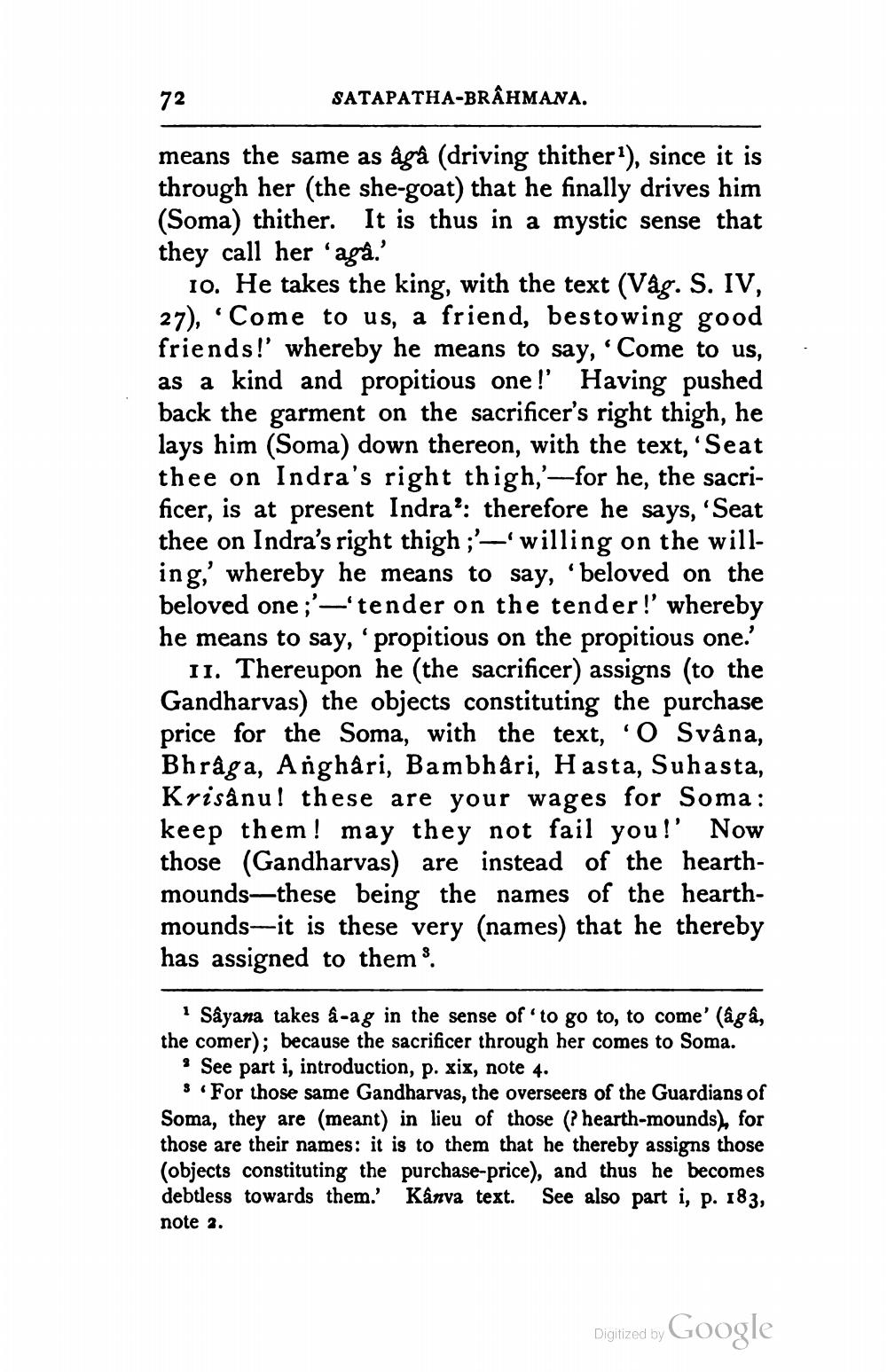________________
72
SATAPATHA-BRAHMANA.
means the same as âgà (driving thither), since it is through her (the she-goat) that he finally drives him (Soma) thither. It is thus in a mystic sense that they call her 'agà.'
10. He takes the king, with the text (Vag. S. IV, 27), 'Come to us, a friend, bestowing good friends!' whereby he means to say, 'Come to us, as a kind and propitious one!' Having pushed back the garment on the sacrificer's right thigh, he lays him (Soma) down thereon, with the text, Seat thee on Indra's right thigh,'--for he, the sacrificer, is at present Indra': therefore he says, 'Seat thee on Indra's right thigh ;'--' willing on the willing' whereby he means to say, 'beloved on the beloved one;'--'tender on the tender!' whereby he means to say, 'propitious on the propitious one.'
11. Thereupon he (the sacrificer) assigns (to the Gandharvas) the objects constituting the purchase price for the Soma, with the text, O Svâna, Bhraga, Anghari, Bambhâri, Hasta, Suhasta, Krisânu! these are your wages for Soma: keep them! may they not fail you!' Now those (Gandharvas) are instead of the hearthmounds—these being the names of the hearthmounds—it is these very (names) that he thereby has assigned to them.
Sâyana takes â-ag in the sense of to go to, to come' (aga, the comer); because the sacrificer through her comes to Soma.
. See part i, introduction, p. xix, note 4.
8 For those same Gandharvas, the overseers of the Guardians of Soma, they are (meant) in lieu of those (? hearth-mounds), for those are their names: it is to them that he thereby assigns those (objects constituting the purchase-price), and thus he becomes debtless towards them.' Kanva text. See also part i, p. 183, note 2.
Digitized by Google




